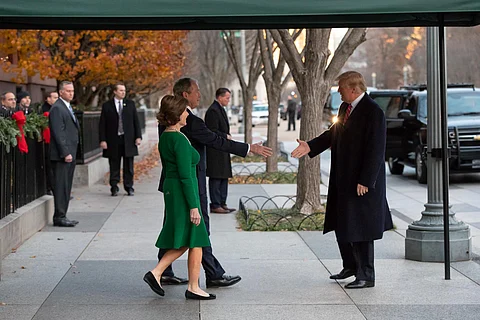

Public sentiment in the United States toward a potential war with Iran is markedly more skeptical than it was in 2003 prior to the U.S. invasion of Iraq.
According to a new Economist/YouGov poll conducted between June 13th and June 16th—immediately following Israel’s airstrikes on Iran—60% of Americans said they oppose the United States going to war with Iran. Only 16% expressed support for potential U.S. military action, with the remainder undecided or neutral.
A separate poll conducted in May by the University of Maryland, prior to the recent escalation, showed a similar result, with only about 14% of Americans supporting hypothetical military action against Iran.
This is in stark contrast to public opinion in the months leading up to the Iraq War in 2003. Gallup polling from August 2002 to March 2003 showed that between 52% and 59% of Americans supported going to war with Iraq. Support peaked at 71% in late March 2003—immediately after the initial invasion—according to surveys from Pew and CNN. That support quickly declined later in the year as the insurgency in Iraq intensified and American casualties rose.
The contrast illustrates a major shift in the American public’s attitude toward foreign military intervention. The polling data also signals a potential political risk for President Donald Trump if he moves forward with military action against Iran.
According to the University of Maryland poll, fewer than one-third of Republican voters—the president’s core political base—support attacking Iran. The divide has been further highlighted by outspoken opposition from key Trump allies and figures in the “America First” movement, including conservative commentator Tucker Carlson and former Trump strategist Steve Bannon. Prominent members of Congress, such as Georgia Representative Marjorie Taylor Greene, have also criticized the prospect of war.
One major difference between now and the lead-up to the Iraq War is the absence of a galvanizing event like the September 11th attacks. In 2002 and early 2003, the Bush administration spent months persuading the public that Saddam Hussein posed an imminent threat due to alleged weapons of mass destruction. Today, however, the American public appears unconvinced that Iran poses a similar danger.
Additionally, the sudden shift from diplomacy to military escalation has likely intensified skepticism. Less than a week before the current crisis, many Americans believed negotiations with Iran were ongoing. The rapid escalation—sparked by Israeli airstrikes and followed by President Trump’s increasingly hawkish rhetoric—has left much of the public blindsided. This, combined with U.S. intelligence assessments from Director of National Intelligence Tulsi Gabbard stating Iran is not pursuing nuclear weapons, may further erode support for intervention.